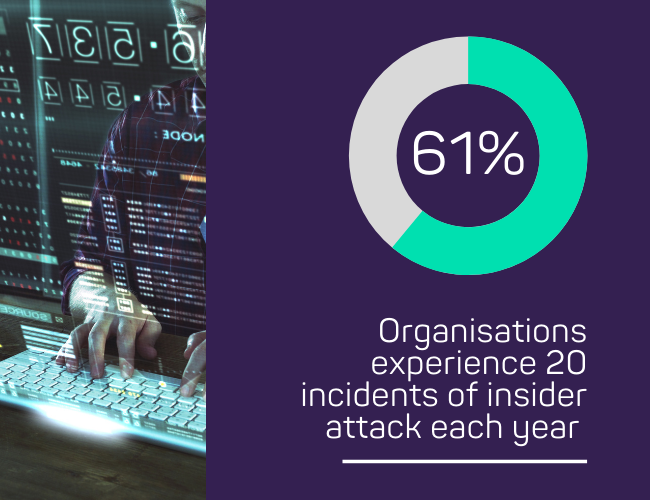In today’s world ‘The Cloud’ is a well-known term but if you were asked to explain what it is and how it all works, could you?
If the answer’s no, you’re not alone.
For many, the concept of the Cloud is bizarre and abstract and there are many cloud computing advantages and disadvantages to get your head around, so let’s break down what it actually all means and why everyone’s talking about it.
What is Cloud Computing?
In simple terms, cloud computing refers to anything that involves the delivery of hosted services over the internet, often on a pay-as-you-go basis. This will include tools and applications like data storage and servers.
Cloud computing is quickly becoming the default option for businesses, with 60% migrating to the Cloud in 2020. This was largely due to the COVID pandemic giving way to remote working. Cloud-based services meant that all employees could work more flexibly and continue to collaborate effectively, wherever they were based.
The numbers clearly show that businesses are becoming more and more drawn to cloud-based services, but why? Is it a no-brainer for all businesses or are there still some very warranted concerns to consider?
Well, we’re going to shed some light on this now by exploring the key advantages and disadvantages of cloud computing.
The Advantages of Cloud Computing for Businesses
Lower costs
You’ll often hear low costs talked about as one of the most appealing aspects of cloud based services and in many cases, this is true. For businesses looking to invest in Software as a Service (SaaS), you can expect to save on your spending as their standard pay-as-you-go models mean you’re not paying for anything you’re not using, which results in lower costs and higher returns.
In terms of infrastructure, things can get a little more complicated depending on your particular business’ requirements. Platform as a Service (PaaS) or Infrastructure as a Service (IaaS) is often cost-efficient for a lot of larger organisations with more comprehensive needs and avoids expensive software and paying licensing and installation costs.
For the small-medium sized business, on the other hand, this could work out more expensive than the costs of a more modest local server set-up. SMEs are therefore better suited to the cloud based SaaS solutions, which can be activated or deactivated and will adapt to fit your business’ needs as they change.
Flexibility and Scalability
There is a great deal of flexibility that businesses can benefit from using cloud providers instead of local servers. As business demands change, cloud services can keep up, accommodating increased usage and activity as your business grows.
Cloud based applications and services can be purchased on-demand and with their pay-as-you-go structure, businesses are not locked into any costly investments that may not later serve their purposes.
On the back of this, cloud computing is importantly scaleable, and in both directions. If your needs vary massively throughout the year, your cloud computing spend can reflect this. For example, you’ll only need to pay for the data storage you require at a particular time.
Data Control
One of the greatest concerns for any business is losing data and with the average cost of a data breach around £3.12m, you can understand why.
If you’re saving all your important data locally, you could end up in real trouble if you lose your data, be it due to hardware problems, human error or cyber attack. A cloud based server centralises all the data so it is easily accessible from any device with an internet connection.
This is why data storage is such a popular use of cloud computing, even if only as a backup solution so your data is kept securely offsite. By keeping your backups offsite and not linked to your network, you ensure that malware cannot access your backup data if you experience a ransomware attack.

Greater Accessibility
Businesses love how easy it is to access the Cloud. Cloud computing allows employees to obtain relevant company data wherever they are 24/7 as long as you’re connected to the internet; there’s no need to be close to a local server. There’s also no issue for those wanting to access the Cloud via their mobile phone, making working on the move entirely feasible.
This kind of ease of access is such a plus for the modern workforce who, especially post-pandemic, are more spread out and remote in their business operations.
More Effective Collaboration
Cloud computing services are a great facilitator of collaborative work. With files and documents all stored in one place, team members are able to view and edit the same information. A record is kept of any revisions and updates made so you know exactly what’s going on and don’t have to get confused over multiple versions of the same file.
With cloud services, you are able to collaborate not just with your internal team, but customers, partners and suppliers through a secure channel with full end-to-end encryption.
The Disadvantages of Cloud Computing for Businesses
Limited control and visibility
The infrastructure is owned by your cloud service provider and while this is a positive in terms of reducing the need for any internal management, it can also be a concern when your business feels too far removed and with little control.
Sometimes it feels like the Cloud is this ethereal entity, particularly when it becomes hard to verify exactly where your data is physically stored. This can cause problems when securely deleting data and avoiding potential remnants being left behind for attackers to target.

Many cloud service providers use a ‘shared responsibility’ model, so you will have to ensure you implement your own strategies for looking after your data and activity in the Cloud. There are plenty of effective tools out there to improve visibility and control, for example, employing a monitoring solution will help you identify when activity in the cloud seems anomalous and potentially malicious, and you can respond accordingly.
Security
According to Check Point, 94% of organisations are moderately to extremely concerned about cloud security. When passing over valuable data to a third-party there are inevitably going to be concerns, especially considering the more limited control and visibility - how are you going to know your data is being protected?
The main security concerns around cloud based services are to do with misconfiguration and data breaches. While your cloud services will offer plenty of security settings, configuring them correctly is key.
The Cloud’s infrastructure is designed to make the sharing of data easy and straightforward, but many businesses will be unfamiliar with securing this kind of infrastructure so security oversights are very possible, leaving the business vulnerable to attack. Research has shown that 99% of misconfigurations go unnoticed too, proving even more dangerous.
One of the big advantages of cloud computing is that it’s so accessible - you just need an internet connection - but this can also mean it’s easier for those unauthorised to access your data and systems. Misconfigured settings or poor password security can lead to accounts being hijacked and attackers gaining access into your organisation, often without your knowledge.

It’s important to bear in mind that insider threat is still at large too, with 61% of organisations experiencing 20 incidents of insider attack a year. Employees working remotely feel unsupervised, able to do what they like, so properly monitoring and managing access and activity within your cloud services, whether you're a small or large organisation, is vital for avoiding insider attacks.
One has to consider the state of security of data that exists on a local server in comparison. While cloud services will often require biometrics to get into a data centre and will have a host of other controls in place, your on-premise data could just be sitting on a desk in the corner of your office or in a poorly secured server room. Your cloud service provider wants to avoid a data loss incident as much as you, so they will handle most security measures, implementing controls that will be far better than what most SMEs would be able to deliver themselves.
You may feel like you’re relinquishing a lot of power and control over your own data to your cloud service provider, but while it’s their job to ensure the cloud infrastructure can be secured, there are certain elements you are responsible for and a need for further security solutions may arise.
There are plenty of solutions out there tailored to cloud service providers to plug any gaps with your cloud security. A good place to start is data loss prevention tools and managed threat and detect services.
Reliability
Of course one downside to cloud computing is that it is fully reliant on the internet, so if your internet cuts out, you won’t be able to access applications and services. This is arguably not a major issue and since we use the internet so frequently in our day-to-day work, it wouldn’t be any more of an inconvenience.
However, relying on a cloud service provider for your business operations can be very disruptive if something goes wrong. Just recently, the Content Delivery Network service, Fastly, demonstrated this.
Despite being a service designed to improve the speed and reliability for visitors coming to a website, Fastly broke down, and a huge number of major websites, including Gov.uk and Reddit, were inaccessible for about an hour.

It goes to show how quickly a single error can lead to a major failure. Although these CDN’s fail rarely, when they do, it doesn’t go unnoticed and if your website relies on that provider, it’ll experience the fallout as well, with the downtime potentially costing your business greatly.
Is Cloud Computing Right for My Business?
Cloud computing has grown rapidly in popularity over the last few years and especially in the last year, with predictions that end-user spending on public cloud services will grow 18.4% in 2021.
The flexibility and accessibility of cloud based services make it an attractive option for organisations, particularly as we explore new working styles like increased home working. Cloud computing’s pay-as-you-go model means that businesses from startup to enterprise level can enjoy the benefits, only using what they need.
While security issues with cloud computing remain the biggest concern, the reality is that the Cloud is more secure than your on-premise solution. At the end of the day, the biggest weakness security-wise in the cloud will be humans, but this can be properly addressed by offering comprehensive cyber security training to staff and consistently monitoring and managing your Cloud environment.
Provided your business assesses the risks and configures the platform correctly so you’ve got eyes on everything, when inevitable threats are identified, you’ll be able to locate and mitigate the risks quickly and massively reduce any impact on your business.
If you’re considering migrating to the Cloud and looking to find out more about the security solutions you might need to mitigate risks, speak to one of our experts today: contact@cybertecsecurity.com.


